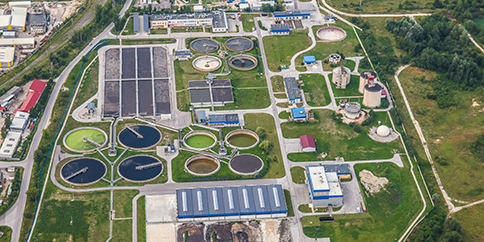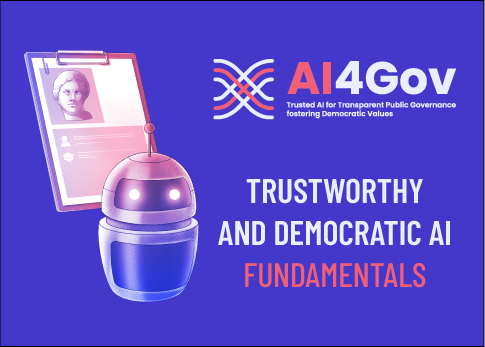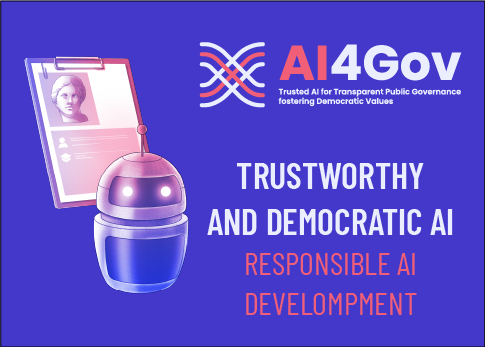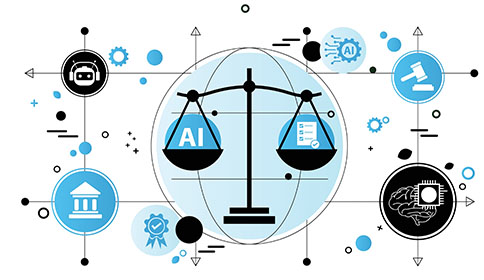-
-
Introducing a One Health approach to AMR (2025)
This course introduces the concept of One Health and explains the importance of a One Health approach in tackling AMR. It emphasises how a complex mix of factors involving humans, animals, aquatic species, plants and the environment contribute to the spread of AMR within and between sectors.
Course
6 hrs
-
Introducing AMR surveillance systems (2025)
This course introduces AMR surveillance systems and the One Health approach to AMR surveillance. It provides and overview of the relationships between AMR surveillance systems in humans, animals and the environment. It also introduces local, national and global AMR surveillance networks and covers the functions of these networks, the types of data that are collected and the uses of this data.
Course
6 hrs
-
AMR surveillance in animals (2025)
This course describes the approaches to surveillance that take place in an animal health context. It explains the concepts of AMR, AMU and AMC and what data are obtained in each category. It also discusses antimicrobial residues and the importance of maintaining surveillance of these products.
Course
6 hrs
-
Communicating AMR data to stakeholders (2025)
This course focuses on effectively communicating AMR data to stakeholder and how effective communication strategies can maximise the impact of data on antimicrobial resistance, antimicrobial use and antimicrobial consumption.
Course
6 hrs
-
Legal and ethical considerations in AMR data (2025)
This course introduces key concepts in medical, public health and animal ethics and shows how they relate to AMR. It introduces the role of international legal frameworks and governance mechanisms relevant to AMR whilst highlighting that this is an emerging area of research and practice.
Course
6 hrs
-
Fundamentals of data for AMR (2025)
This course introduces the basic concepts, definitions and sources of data related to antimicrobial resistance. It reviews why data on AMR, antimicrobial use and antimicrobial consumption needs to be collected, analysed and reported. Introduces important concepts related to error and bias and how they affect the interpretation and use of AMR related data.
Course
6 hrs
-
Processing and analysing AMR data (2025)
This course looks at how AMR data is transformed into information. It provides an overview of the stages from data collection, to data management and data analysis. It introduces core concepts, approaches and methods for analysing data and how they lend themselves to answering important questions about AMR.
Course
6 hrs
-
Summarising and presenting AMR data (2025)
This course introduces common ways of summarising data visually, reviews the strengths and limitations of each approach, and discusses how visual summaries can be used to enhance the analysis of AMR-related data. The course explores the effectiveness of visual summaries in communicating important information to a wide range of people.
Course
6 hrs
-
Antimicrobial stewardship in clinical practice (2025)
This course focuses on the principles and practice of antimicrobial stewardship in the clinical context. It discusses prescribing practices, the use of antimicrobials for therapeutic purposes and the ways that practices can be improved to mitigate the impact of AMR.
Course
6 hrs
-
Diagnostic stewardship in clinical practice (2025)
This course is aimed at non-laboratory personnel. It explains basic laboratory methods, introduces different stages of laboratory processes and discusses factors that contribute to the performance and cost-effectiveness of tests.
Course
6 hrs
-
Antimicrobial stewardship in animal health (2025)
This course provides an overview of antimicrobial stewardship in animal health including prescribing and the use of antimicrobials for therapeutic and non-therapeutic purposes and the role of diagnostics in guiding therapeutic decisions in food animal production.
Course
6 hrs
-
Pathway of AMR for a laboratory professional in human health
Pathway for laboratory technicians or assistants, technologists and laboratory scientists in the human health sector. Pathway courses cover good laboratory practice and management, the One Health approach to tackling AMR, surveillance in AMR, and the processing, analysing and use of AMR data.
Material
90 hrs
-
Pathway of AMR for a laboratory professional in animal health
Pathway for laboratory technicians or assistants, technologists and laboratory scientists in the animal health sector. Courses cover good laboratory practice and management, the One Health approach to tackling AMR, surveillance in AMR, and the processing, analysing and use of AMR data and antibiotic stewardship in the animal sector.
Material
102 hrs
-
Pathway of AMR for a senior laboratory professional in human health
Pathway for heads or manager of a laboratory or head of unit in the human health sector. Courses cover good laboratory practice and management, the One Health approach to tackling AMR, surveillance in AMR including national surveillance systems, and the processing, analysing and use of AMR data and antibiotic stewardship in the human health sector.
Material
114 hrs
-
Pathway of AMR for a senior laboratory professional in animal health
Pathway for laboratory heads or managers or heads of unit in the animal health sector. Courses cover good laboratory practice and management, the One Health approach to tackling AMR, surveillance in AMR including national surveillance systems, and the processing, analysing and use of AMR data and antibiotic stewardship in the animal health sector.
Material
126 hrs
-
Pathway of AMR for a clinical services professional
Pathway for clinicians, nurses, pharmacists and clinical officers. Courses cover the One Health approach to tackling AMR, surveillance in AMR, and the processing, analysing, summarising, presenting and use of AMR data and antibiotic stewardship in clinical services.
Material
96 hrs
-
Pathway of AMR for a senior management clinical services professional
Pathway for heads of hospitals, chairs of IPU committees/drugs and therapeutics/resources and superintendents. Courses cover the One Health approach to tackling AMR, surveillance in AMR including national surveillance systems, and the handling and communication of AMR data and antibiotic stewardship in clinical services.
Material
114 hrs
-
Pathway of AMR for a veterinary services professional
Pathway for veterinarians, para-veterinarians, farmers, field/veterinarian officers and veterinarian pharmacists. Courses cover good laboratory practice and management, the One Health approach to tackling AMR, surveillance in AMR, and the fundamentals of AMR data management and its use for communication and antibiotic stewardship in the animal health sector.
Material
108 hrs
-
Pathway of AMR for a senior management veterinary services professional
Pathway for directors or deputy directors of veterinary services. Courses cover good laboratory practice and management, the One Health approach to tackling AMR, surveillance in AMR including national surveillance systems, and the handling and communication of AMR data and antibiotic stewardship in the veterinary sector.
Material
126 hrs
-
Pathway of AMR for policy-makers
Pathway for members of the AMR Secretariat, government departments of health, agriculture, livestock and fisheries, and representatives from the WHO, FAO, OIE. Courses cover the One Health approach to tackling AMR, surveillance in AMR including national surveillance systems, and the processing, analysing, summarising and presenting of AMR data and its use for communication and policy-making.
Material
120 hrs
-
Pathway of AMR for data scientists and epidemiologists
Pathway for data scientists and epidemiologists. Courses cover good laboratory practice and management, the One Health approach to tackling AMR, surveillance in AMR including national surveillance systems, and the processing, analysing, summarising and presenting of AMR data and its use for communication and policy-making.
Material
138 hrs
-
-
-
Trustworthy and Democratic AI - Responsible AI Development
This short learning course is designed to explore the potential of artificial intelligence (AI) to enhance democracy. It will showcase practical, evidence-based innovations and recommendations aimed at strengthening public engagement and promoting trustworthy and democratic AI.
Course
10 hrs
-
-
Preparing for tomorrow: horizon scanning and AI literacy
This eighth course highlights different sources of information for keeping up to date with Generative AI developments, and their strengths and weaknesses. It also considers the impact on human intelligence by artificial intelligence and the importance of AI literacy.
Course
2 hrs
-
-
Rights for Wetlands: 1 - Introduction to wetlands
Introduction to wetlands: This course is the first of six courses in a collection of courses entitled Environmental & Social Rights for Wetlands & Communities. This course introduces what wetlands are, describes the different types of wetlands found throughout the world and discusses the different characteristics that make wetlands such incredible ecosystems.
Course
1 hr
-
Rights for Wetlands: 2 - Wetland Solutions
Wetland solutions: This course is the second of six courses in a collection of courses entitled Environmental & Social Rights for Wetlands & Communities. This course examines the challenges and threats facing wetlands and communities from climate change to natural disasters to human exploitation. It also examines the different types of solutions communities have established to face these challenges with examples given from around the world.
Course
1 hr
-
Rights for Wetlands: 3 - Rights of Nature and Rights of Wetlands
Rights of Nature and Rights of Wetlands: This course is the third of six courses in a collection of courses entitled Environmental & Social Rights for Wetlands & Communities. This course discusses Rights of Wetlands by considering why we need Rights of Wetlands, what Rights of Wetlands and Rights of Nature are and how they are being implemented in different parts of the world.
Course
1 hr
-
Rights for Wetlands: 4 - Wetland management planning
Wetland management planning: This course is the fourth of six courses in a collection of courses entitled Environmental & Social Rights for Wetlands & Communities. This course is divided into four units that look at how to undertake wetland management planning. The first unit looks at how to plan and techniques that can be used for stakeholder engagement. Unit 2 discusses how to describe the characteristics of your wetland and how to evaluate the key features found within the wetland. Unit 3 provides guidance on how to set management objectives for the key wetland features whilst Unit 4 finishes by explaining how to develop a management plan of activities and how to set up and deliver a monitoring and review programme for the management plan.
Course
4 hrs
-
Rights for Wetlands: 5 - Social & Environmental Rights
Social & Environmental Rights: This course is the fifth of six courses in a collection of courses entitled Environmental & Social Rights for Wetlands & Communities. This course is divided into six units that examine social and environment rights in different country contexts. The first unit examines exactly what social and environmental rights are. Units 2, 3, 4, 5 and 6 provide case study examples of social and environmental rights in Bolivia, Ecuador, Guyana, Kenya and Sri Lanka respectively.
Course
6 hrs
-
My OpenLearn Create Profile
- Personalise your OpenLearn profile
- Save Your favourite content
- Get recognition for your learning
Already Registered?

















































